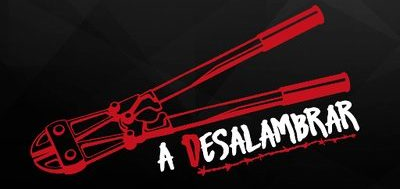 |
BASQUE INFO 11/11/08
MAIN NEWS OF THE WEEK
-Another French police operation against the pro-independence movement.
18 people were arrested last Tuesday and Wednesday in the north of the Basque Country by dozens of French policemen. On the 24th of September 14 members and leaders of the pro-independence party Batasuna were also arrested in the north in a similar operation. All of them were released 24 hours later. The same procedure was carried out in last week’s operation. The arrested are well known activists in the Basque language movement and nationalist circles. They have been managing and working in pro-independence bars in recent times. According to the police the arrests were made in relation with the finances of the pro-independence movement.
The anti-repression group Askatasuna said that this is all part of a repressive plan designed by the French government to stop the success of the pro-independence movement in the north of the Basque Country. Askatasuna stated that the current problem in the Basque Country won’t be solved with more police arrests, bannings and prosecutions, but with a democratic process.
Protests against the police operation were held in many different northern villages and towns such as Hazparne (40 people), Itsasu (40), Azkain (45), Larresoro (60), Ziburu (45) and Baiona (100).
OTHER NEWS IN BRIEF
-ETA says “they won’t stand by while terrorist attack is launched against the Basque Country”.
In a wide statement written in Basque language last week, the armed Basque group ETA claimed the responsibility for 10 attacks and explained their political analysis of the conflict.
"The resistance will continue while the rights of the Basque Country are not recognized and respected," the group said in the statement.
ETA accuses the Spanish government of repeating the same mistakes made by previous governments and affirmed they will sit at a negotiation table once again. “The problem is not ETA” continues the statement. “The solution to the conflict is in the acceptance of the Basque people’s rights”, it concludes.
-More than 750 Basque political prisoners for the first time in 40 years.
Exactly 755 Basque citizens are imprisoned and scattered in 82 jails all around Spain and France. Just 16 of them are in Basque prisons. The numbers were exposed at a massive press conference held at the end of the VIII National Assembly organized by Etxerat, the Basque political prisoners’ relatives group.
They called upon Basque society and institutions to get involved in the defense of their relatives’ human rights and to create a mass movement to bring them home. A national demonstration will be organized on the 3rd of January 2009.
-Hundreds of people attended Solidarity Weekend in the North.
The Basque prisoners support group Askatasuna asked people to turn fear into strength; and to keep fighting in order to go from the current situation of French government’s contempt towards the Basque Country, to one of recognition. The call was made at the annual Solidarity Day where music, food and rallies were organized.
They remembered that more than 40 people have been arrested in the north of the Basque Country in the last two months. The estimated population in the north is 270,000 people.
BREAKING NEWS
-3 young people were arrested last night in the Basque capital Irunea/Pamplona for being members of Segi, the youth pro-independence organization. Segi is currently banned in the south of the Basque Country and members of its leadership are serving 6 year prison sentences.
CULTURE NEWS
Long life Basque songwriter Benito Lertxundi released new album two weeks ago.
Benito Lertxundi started his career with the new artistic Basque group Ez dok amairu, put together in 1965, largely made up of folk singer-songwriters concerned with Basque culture. Benito Lertxundi and others took to singing accompanied on a guitar for the first time in Basque music, a fact that came in for much criticism on the grounds that the instrument was alien to the Basque culture. Ez dok amairu broke up in 1972 and its members took up separate paths that eventually have confirmed some of them as acclaimed and key folk Basque singers up to the 2000s. That’s the case of Benito Lertxundi, probably the most acclaimed along with Mikel Laboa. In a context of social and political unrest, it is they provided the musical background for the 70's period of struggle, repression and turmoil Benito Lertxundi is still very much involved in campaigns and events to support Basque language, prisoners…etc.
Itsas ulu zolia (The sea pleasant howl) is the title of his last album, released at the end of last October and can be downloaded at: http://www.e-boza.com/informazioa.cfm?abeskodea=Bakea&hizkuntza=2
